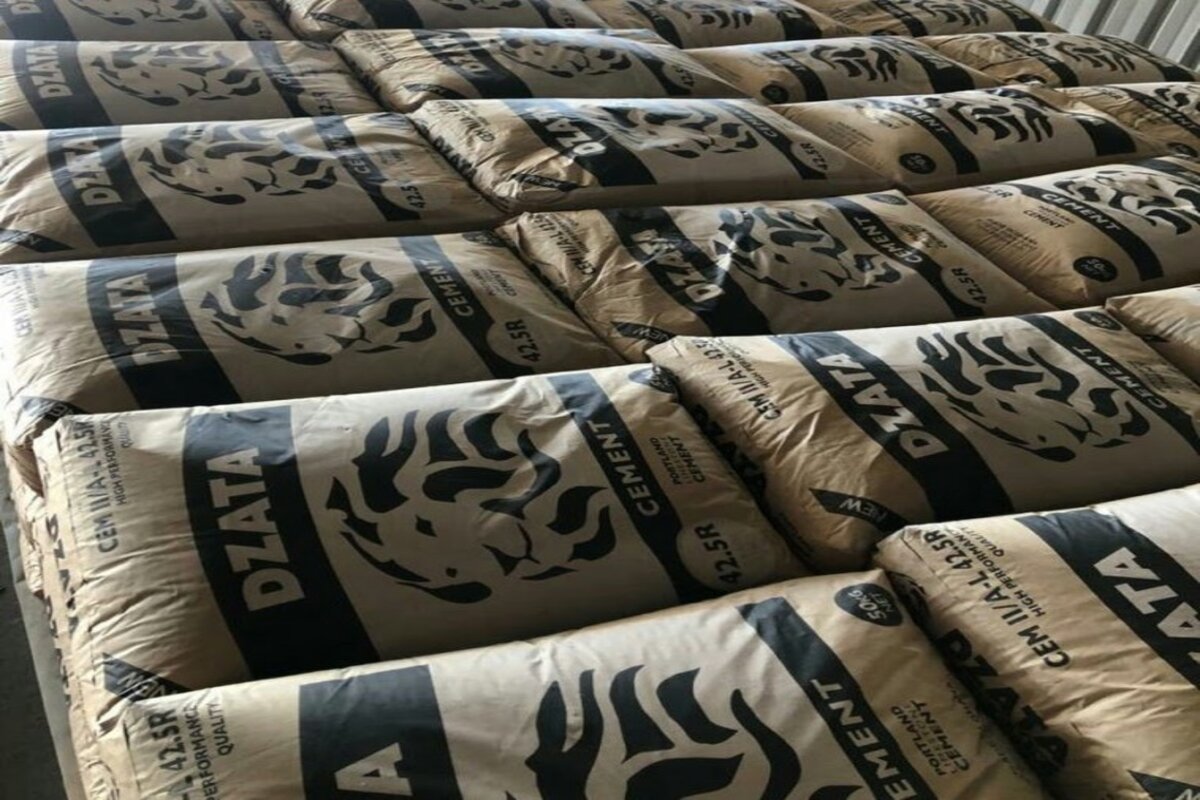Are you looking for details and prices on Dzata Cement? Then you’re at the right place.
Currently, cement prices in Ghana have risen as Ghacem has raised its prices across the board and a 50 kg is sold at 50ghc.
But the good news is that Ibrahim Mahama’s “Dzata cement has brought some relief in the system considering the current price of Dzata cement.
What Is Dzata Cement
Dzata is a local name for a lion. Cement as we all know is a substance used for construction that sets, hardens, and adheres to other materials to bind them together.
The cement product is packaged beautifully with an embossment of a lion’s ( Dzata ) image, hence the name Dzata Cement.
Dzata Cement is the first private sector wholly Ghanaian-owned cement factory.
Price of Dzata Cement
Dzata cement is sold in the market for 30ghc which is a lanky half of what almost all cement including Ghacem and Dangote cement are selling currently in the country.
Location of Dzata Cement
The factory is located on about 10 acres of land near the Tema port and just opposite Dangote cement.
The over 200 million dollar plant is expected to produce an average of 120 bags per minute from its two production lines and is expected to create some five thousand direct and indirect jobs.
Contact Dzata Cement
024 194 1846
Dzata Cement History
Construction of DZATA Cement started some nine years ago when the ground was broken for general earthworks to commence.
Following the completion of general Earthworks, the Foundation of two (2) warehouses started in earnest.
Construction of the foundation took twelve (12) months after which attention shifted to the main plant installation.
The installation was undertaken by Ghanaian artisans with supervision by the manufacturers.
This exercise was undertaken in sixteen (16) months.
The factory is located on ten (10) Acre land near the Tema Port with technology deployed by German developers Haver & Boecker.
The type of cement produced by the plant is the Ordinary Portland Cement which is imported for the plant.
The plant will bag an average of 120 bags per minute from the two (2) production lines with an annual production of 2.6 million tons of cement.
The plant has two (2) warehouses that accommodate two shiploads of jumbo bags of cement. Production Silos can hold forty thousand metric tons of cement at any given time.
Control of the plant is from a centralized point as the operations will be automated with very minimal human activities within the plant.
